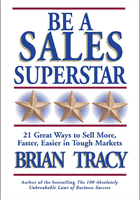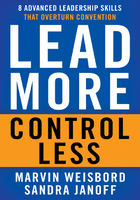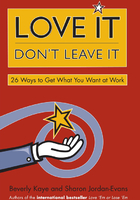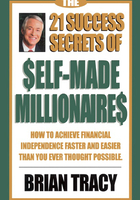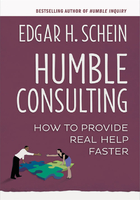Let us try to sing another song rather than another verse, the same as the first. I am not saying it will be easy, and I may have to catch myself as I fall into the same habits. We have memorized so many of the old verses that, at the first note we hear, it is difficult not to start singing immediately what we already know. However, we need new songs in our future with more hope and promise than those we have seen in the past. We are going to try our hardest to find a way to craft them together, so that we can all march to a different tune.
The acceleration in income inequity over the past several decades is well known and well documented. During the last twenty-five years, the gap between rich and poor has grown almost fivefold.[1] Federal tax giveaways to those in the higher income brackets have not only created shameful disparities, but have also applied additional pressures on future prospects that now must be shed. We have entire cities in the United States, including Boston, Seattle, New York, and Washington, where working families earning moderate incomes can survive only if, like farmers, they owned their land before the boom times and have not lost it in the waves of refinancing and foreclosures now buffeting the economy. This is an epidemic that has resulted in falling health standards, increased mortality, denied educational and other opportunities, depressed wages and incomes, and a score of other conditions unthinkable in a healthy and successful society. In mid-2008, a record number of Americans (more than 80 percent[2]) said that they believed the country was on the wrong track. Rather than being a Cassandra warning of dire consequences to come, I argue that such a course is not inevitable or predetermined, especially if we are willing to alter the paradigm and focus on the ways and means of creating citizen wealth.
I am not an optimist looking through rose-colored glasses; I am in fact quite the opposite.
Having worked as chief organizer for ACORN (Association of Community Organizations for Reform Now)-"first and stayed the longest"-for nearly forty years, I have encountered hundreds of campaigns designed to create citizen wealth, or at least to prevent the erosion of the financial health and well-being of our constituency of low-and moderate-income families. These campaigns have been established both in the United States and around the world.[3] None of this work has been easy, and all of it has met with fierce opposition at every twist and turn. Therefore, I cannot pretend that anything I am going to advocate from our experience or from the experiences of many other organizations is going to be met with open arms, much less with open wallets. Changing the paradigm to winning wealth for our citizens is going to be a process involving some hand-to-hand combat. My goal is to recruit you as a soldier in this new battle with every word you read.
We have to change the narrative in a clear-eyed and hard-fisted way. The Horatio Alger story of our modern Gilded Age spins out constantly in every news cycle. This includes the People magazine/Forbes 400 versions of the lives of the rich and famous. The outer limits of the absurd gap between rich and poor in the United States are defined by a story on CBS about the status and wealth envy in Manhattan between the mere millionaires and the mega-millionaires.[4] We need little more than the current profound recession, frequently cited as the worst economic situation since the Great Depression, to remind all of us of the thin line between security and deprivation and making a mockery of the stories that were so current only months before the bottom fell out.
Meanwhile, there are 300 million other Americans-and at least 32 percent of the 300 million are low and moderate income.[5] This particular population is, in fact, singing another verse that is the same as the first. These families are being dropped from health insurance coverage at accelerating rates,[6] and they are unable to finance higher education for their children.[7] All of this is taking place as the gains in home ownership over the last decade have been erased overnight,[8] leaving 3 million to 4 million families to face foreclosure.[9] All of these factors contribute to the loss of homes, which is the basis for most definitions of citizen wealth for low-and moderate-income families.[10]
I have traveled a long road to the place where I want to stand with you to fight for citizen wealth. When I was an organizer for the National Welfare Rights Organization (NWRO) in Springfield and Boston, Massachusetts, in the late 1960s, our primary slogan on every sign and banner was ADEQUATE INCOME NOW! Women on welfare did not win then and are certainly not winning now. However, in some ways this unrecognized issue is still at the center of the campaign for citizen wealth. In ACORN we saw something surprising start to happen over the decades. Since we began pitched battles in the mid-1970s against the banks that were exploiting our neighborhoods, we have not only seen the passage of programs that make a difference, like the Community Reinvestment Act (CRA) in 1977,[11] but we have also seen some of our opponents in these campaigns gradually changing course and becoming partners. These new partners have learned that a business model serving low-and moderate-income families rather than avoiding them is not only important to us, but can also be a valuable franchise and major profit center. In fact, the results of these campaigns are significant. In one decade these ACORN campaigns have, estimated conservatively, won $15 billion in direct economic benefits in the form of direct transfers from the government and corporations to lower-income families.[12] This is my definition of creating citizen wealth!
Over the last ten years, ACORN's Financial Justice Center has been able to focus on developing campaigns against the predatory practices of financial institutions, tax preparers, credit card companies, payday lenders, mortgage companies, and servicers (which are mostly no longer banks). During these hard-fought efforts, the Financial Justice Center has found not only that change is possible, but also that it is possible to create a different and better world. I am speaking of a world in which the interests of customers as consumers and constituents can be reconciled to a more comfortable coexistence with corporate America. We have not found that this is a natural impulse. We have noticed, however, that once firms have been forced to adapt they are able to embrace a new future that is compatible with a vision of citizen wealth that is more constructive than corporate banditry.
We want to model good behavior and make the most of the surprising paradox that has emerged from many ACORN campaigns around financial justice and wealth creation. The focus of these campaigns is on governments and corporations that have determinedly resisted initiatives to increase citizen wealth and have then found, to their amazement, that they also benefit from the shift in thinking and new business and service models that reclaim the mission of citizen economic development and improvement as a core pursuit of the American project and promise. Such a premise requires governments to design their citizen wealth programs as a positive good, rather than focusing all their implementation efforts on the negative, obsessed with the rare instances of fraud or error. The public debate on government needs to focus on the increased resources and revenue of a citizenry with greater wealth and on the ability to see "all boats rise" rather than on the usual complaints about small leakage in positive public initiatives in these areas. Similarly, firms need to understand that a wealthier citizenry benefits the bottom line of all enterprises. This is a more constructive and sustainable business model than a constant fleecing of pennies and dollars through hidden and corrosively predatory practices "just because they can." It has been our work for decades to prove that they cannot. I am not arguing that they will inevitably be caught, but that businesses operating within this framework are shortsighted and not even serving their own interests.
Focusing on citizen wealth is neither natural nor easy for any of these outfits. I cannot maintain that this is a wide sweeping trend that is suddenly the rage in corporate boardrooms and in the halls of government. I am arguing quite the opposite. There have been huge struggles for wealth creation and significant successes for tens of thousands of citizens at the bottom that, if expanded and built upon, could revolutionize our society and achieve real and lasting equity-if these paradigms are sufficiently supported and scaled as part of policy, program, and practice.
I also think we have learned some lessons from thousands of campaigns that were created to fight government and some of the world's most prominent corporations both on the streets and at the bargaining
tables-in engaging, shaping, and, in some rare cases, changing their operational models and in persuading them to change their political position to advance financial justice by creating citizen wealth. This will lead to increased resources for their own enterprises, whether private or public. My argument is that, just maybe, this is possible and that, perhaps, now is the time to make it happen.
The topic of citizen wealth has become surprisingly controversial in present-day America. Therefore, we must clear that up at the outset, because citizenship itself has become fraught with controversy, when it is really the subject of wealth that should be more the rage. Few seem as exercised as they need to be about wealth, but the notion of "citizen" has been and remains controversial. When I speak of "citizen," I am not projecting the classical Greek view that some would now adopt. The Greeks saw democracy as a radical concept, but it was strictly limited to those who were the sons and daughters of other citizens in places like Athens. Over the years it became harder and harder to become a citizen, and in fact in the 5th century the Athenians removed 5,000 people from the list of citizens to limit those who might be eligible to receive rations from a gift of grain from an Egyptian king.[13] Even then, it seems, where there was a question of wealth versus citizenship, it was clear which would take the hindmost. My use of the term citizen wealth throughout this volume is declared in the broadest, most comprehensive, and inclusive sense in the way that the French after the 14th century defined a citizen as being any "inhabitant of the country." After the French Revolution, the common greeting on the street from one person in France to another was "Citizen…," in the same way we might say "Mr.," "Ms," or "Brother," or as South Africans say and Russians once said, "Comrade." This signified that we were all together in making the revolution and trying to build one united, if not always happy, family. I will be speaking about citizen wealth in this all-encompassing way, because our vision here is to see all lower-income and working families moving further away from poverty, and I draw no distinctions there, and require no fingerprints or picture identification. If you inhabitant this country, then I want to imagine our creating plans and programs that find all citizens ahead and none left behind.
I hope to prove, with your help, that there should be a different paradigm, and that perhaps together, using your personal methods and keeping me in mind, we can force the pieces to fit more closely and smoothly together to create real citizen wealth.
Let us see if we can get there together.

